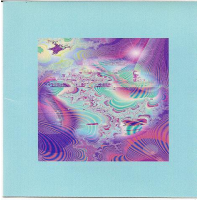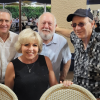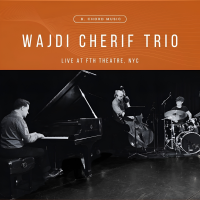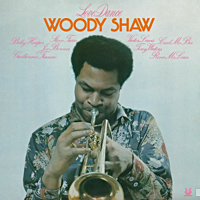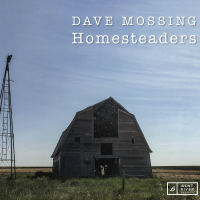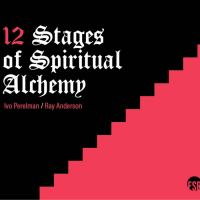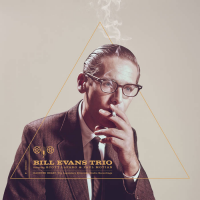Home » Jazz Articles » Album Review » Frank Portolese: Last Call
Frank Portolese: Last Call
Portolese’s guitar tone is different. Neil Tesser points out in the album’s liner notes that this guitar was constructed in 1965 by Bill Barker. The Barker guitar gives Portolese a light, but edgy sound. He uses a pick with fluid ease; however, the resonant qualities of his instrument result in phrases that end prematurely. It’s a style that we identify with bebop. Without a lasting ring, the instrument clips notes and allows the performer to move quickly through adventurous territory.
Influenced by Joe Pass, the leader exhibits a natural link to light, easygoing melodic navigation. Joe Henderson’s “Inner Urge” and three of the leader’s originals place guitar, bass and drums in the role of free, creative, trio improvisation. Each of the three artists unleashes empathetic ideas that produce exciting interplay.
With piano trio, Wayne Shorter’s “Virgo” floats gently to chorded guitar melodies, while burners such as Horace Silver’s “Room 608” swing with a hard bop soulfulness. Last Call, Portolese’s second album, brings straight-ahead jazz guitar out into the open with a distinctive sound and a familiar format.
Track Listing
The More You Talk (The Less I Listen); Burn Unit; These Foolish Things; E.S.P.; Milestones; Virgo; Room 608; Inner Urge; Quintin; The Dance; Last Call.
Personnel
Frank Portolese
guitarFrank Portolese- guitar; Larry Luchowski- piano; Dave Marr, Brian Sandstrom- bass; Tim Davis, Rusty Jones- drums.
Album information
Title: Last Call | Year Released: 2001 | Record Label: Southport Records
Tags
PREVIOUS / NEXT
Frank Portolese Concerts
Support All About Jazz
 All About Jazz has been a pillar of jazz since 1995, championing it as an art form and, more importantly, supporting the musicians who make it. Our enduring commitment has made "AAJ" one of the most culturally important websites of its kind, read by hundreds of thousands of fans, musicians and industry figures every month.
All About Jazz has been a pillar of jazz since 1995, championing it as an art form and, more importantly, supporting the musicians who make it. Our enduring commitment has made "AAJ" one of the most culturally important websites of its kind, read by hundreds of thousands of fans, musicians and industry figures every month.




